第32章
I am not complaining of all this. I do not assert that anything better is compatible, as a general rule, with the present low state of the human mind. But that does not hinder the government of mediocrity from being mediocre government. No government by a democracy or a numerous aristocracy, either in its political acts or in the opinions, qualities, and tone of mind which it fosters, ever did or could rise above mediocrity, except in so far as the sovereign Many have let themselves be guided (which in their best times they always have done) by the counsels and influence of a more highly gifted and instructed One or Few. The initiation of all wise or noble things comes and must come from individuals; generally at first from some one individual. The honour and glory of the average man is that he is capable of following that initiative; that he can respond internally to wise and noble things, and be led to them with his eyes open. I am not countenancing the sort of "hero-worship" which applauds the strong man of genius for forcibly seizing on the government of the world and making it do his bidding in spite of itself. All he can claim is, freedom to point out the way. The power of compelling others into it is not only inconsistent with the freedom and development of all the rest, but corrupting to the strong man himself. It does seem, however, that when the opinions of masses of merely average men are everywhere become or becoming the dominant power, the counterpoise and corrective to that tendency would be the more and more pronounced individuality of those who stand on the higher eminences of thought. It is in these circumstances most especially, that exceptional individuals, instead of being deterred, should be encouraged in acting differently from the mass. In other times there was no advantage in their doing so, unless they acted not only differently but better. In this age, the mere example of non-conformity, the mere refusal to bend the knee to custom, is itself a service. Precisely because the tyranny of opinion is such as to make eccentricity a reproach, it is desirable, in order to break through that tyranny, that people should be eccentric. Eccentricity has always abounded when and where strength of character has abounded; and the amount of eccentricity in a society has generally been proportional to the amount of genius, mental vigour, and moral courage it contained.
That so few now dare to be eccentric marks the chief danger of the time.
I have said that it is important to give the freest scope possible to uncustomary things, in order that it may in time appear which of these are fit to be converted into customs. But independence of action, and disregard of custom, are not solely deserving of encouragement for the chance they afford that better modes action, and customs more worthy of general adoption, may be struck out; nor is it only persons of decided mental superiority who have a just claim to carry on their lives in their own way. There is no reason that all human existence should be constructed on some one or some small number of patterns. If a person possesses any tolerable amount of common sense and experience, his own mode of laying out his existence is the best, not because it is the best in itself, but because it is his own mode. Human beings are not like sheep; and even sheep are not undistinguishably alike. A man cannot get a coat or a pair of boots to fit him unless they are either made to his measure, or he has a whole warehouseful to choose from: and is it easier to fit him with a life than with a coat, or are human beings more like one another in their whole physical and spiritual conformation than in the shape of their feet? If it were only that people have diversities of taste, that is reason enough for not attempting to shape them all after one model.
But different persons also require different conditions for their spiritual development; and can no more exist healthily in the same moral, than all the variety of plants can in the same physical, atmosphere and climate. The same things which are helps to one person towards the cultivation of his higher nature are hindrances to another. The same mode of life is a healthy excitement to one, keeping all his faculties of action and enjoyment in their best order, while to another it is a distracting burthen, which suspends or crushes all internal life. Such are the differences among human beings in their sources of pleasure, their susceptibilities of pain, and the operation on them of different physical and moral agencies, that unless there is a corresponding diversity in their modes of life, they neither obtain their fair share of happiness, nor grow up to the mental, moral, and aesthetic stature of which their nature is capable.